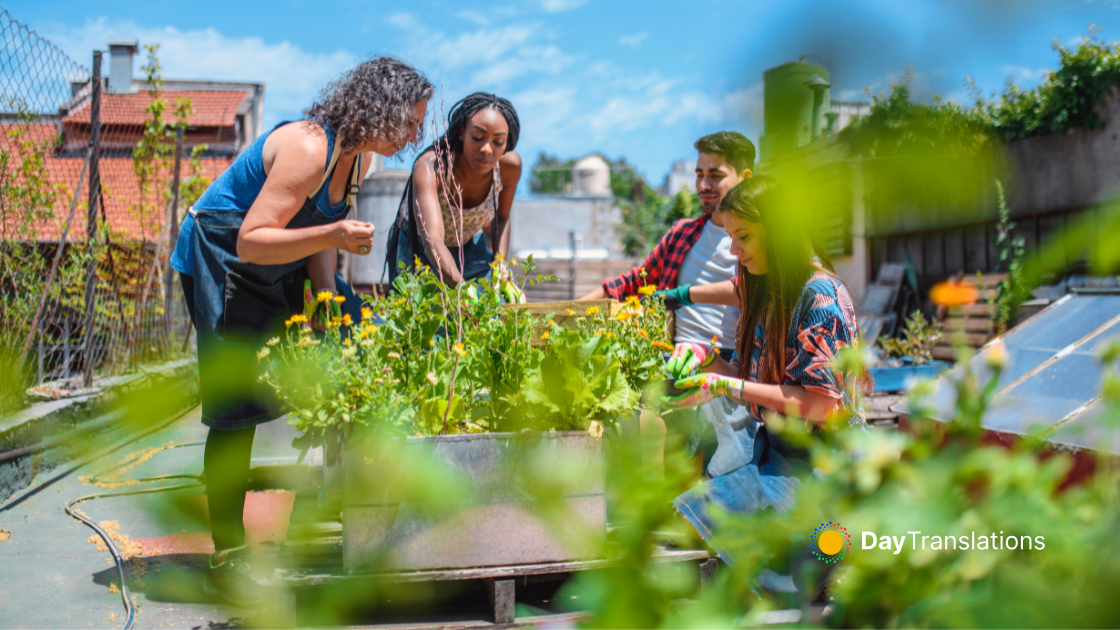These days, you can find someone talking about community everywhere you turn. There are online communities, school communities, fitness communities, global communities—even the cheese aisle seems to have a lactose-intolerant community. But what’s the meaning of community?
Go ahead and ask someone what community actually means, and you might get a lot of blank stares… or vague answers involving “togetherness” and “support.” All good things, sure—but the word has some surprising roots that tell a deeper story.
So, in this rendition of Mystery Mondays, let’s go full detective mode and dig into where “community” really comes from. Spoiler alert: It’s more than just a friendly group chat.
From Latin with Love
The word community comes from the Latin communitas, which itself is built from two smaller words:
- “com-” meaning together
- “munus” meaning gift, duty, or service
So at its core, “community” is not just about being near other people. It’s about sharing responsibilities, contributing to the group, and offering something of value—whether that’s time, knowledge, protection, or (let’s be honest) snacks at a meeting.
In other words, a community isn’t just a bunch of people who happen to live or exist near each other. It’s people who give to each other. The root idea isn’t passive—it’s active.
Wait… “Munus” Like a Roman Job?
Yes! The Latin munus could also mean a public service, like a job done for the greater good. Ancient Romans used it to describe things like military service, public work projects, or civic responsibilities.
So when we talk about “community,” the original idea includes this underlying current: you’re part of something, and you have a role to play in keeping it going. It’s not just a place—it’s a purpose.
It’s like the ancient Roman version of “don’t just be here… belong here.”
The Evolution of the Word
Over time, communitas passed through Old French as communité and landed in English as community around the 14th century. Early uses described everything from religious brotherhoods to shared land usage. But the idea always circled back to connection with a common goal—whether spiritual, agricultural, or social.
The digital age has stretched the word further. Today, you can be part of a community of gamers, writers, fans of obscure 90s sitcoms, or people who unironically love spreadsheets. But even when we’re scattered across the globe, the original meaning sticks: we share something, and we contribute something.
Community Isn’t Always Convenient
Here’s something that gets overlooked: building and maintaining a true community can be messy. People have different opinions. Needs shift. Not everyone contributes equally. And let’s face it, sometimes group chats go entirely off-topic.
But the concept of munus—the idea of shared duty—reminds us that communities aren’t always about getting something. Sometimes, they’re about showing up, even when it’s hard, and giving what you can.
That’s the invisible glue that holds communities together. Not convenience, but commitment.
Why the Meaning of Community Still Matters (More Than Ever)
In a world where we’re more connected than ever—but sometimes lonelier than ever too—the idea of community has taken on fresh meaning.
- Shared interests help people find belonging.
- Shared struggles help people build strength.
- Shared wins help people grow.
And when things get hard—whether it’s a personal crisis or a global one—community is what gets us through.
It’s the neighbour who checks on you when your power goes out.
The co-worker who steps in to help when your day’s gone sideways.
The stranger on a forum who gives you exactly the info you needed.
They might not even realise it, but they’re living out the ancient meaning of community: a shared duty, a mutual gift.
Final Thoughts: Community Is a Verb
Here’s the twist: if we really follow the Latin roots, community isn’t just a noun—it’s kind of a verb in disguise.
To be part of a community is to do something. To contribute. To share. To support.
So the next time you hear someone talk about “building community,” remember—it’s not just about gathering people. It’s about activating the idea of munus: giving of yourself, and receiving what others give in return.
Community means together + gift/duty. It’s less “let’s hang out” and more “let’s have each other’s backs.” And that’s a Monday mystery worth solving.
Want more word origins that reveal just how weird, wonderful, and wise our language really is? Stay tuned for next week’s Mystery Mondays—where everyday words get the spotlight they didn’t know they deserved.










Sorry, the comment form is closed at this time.